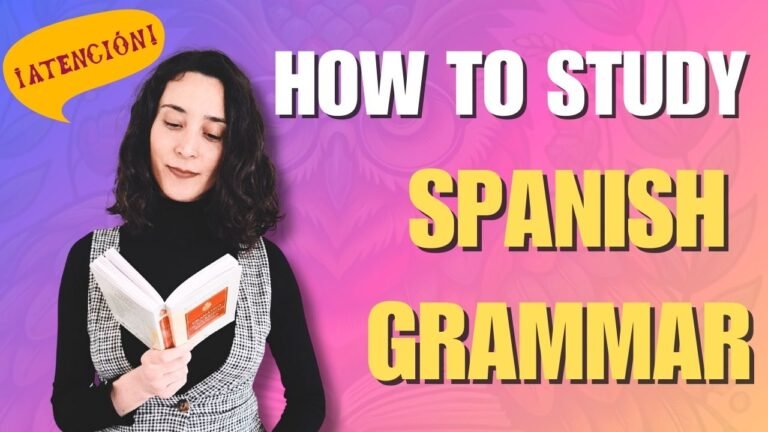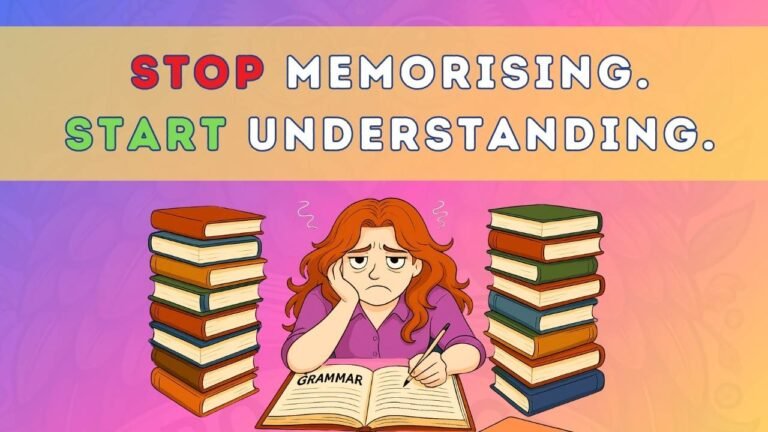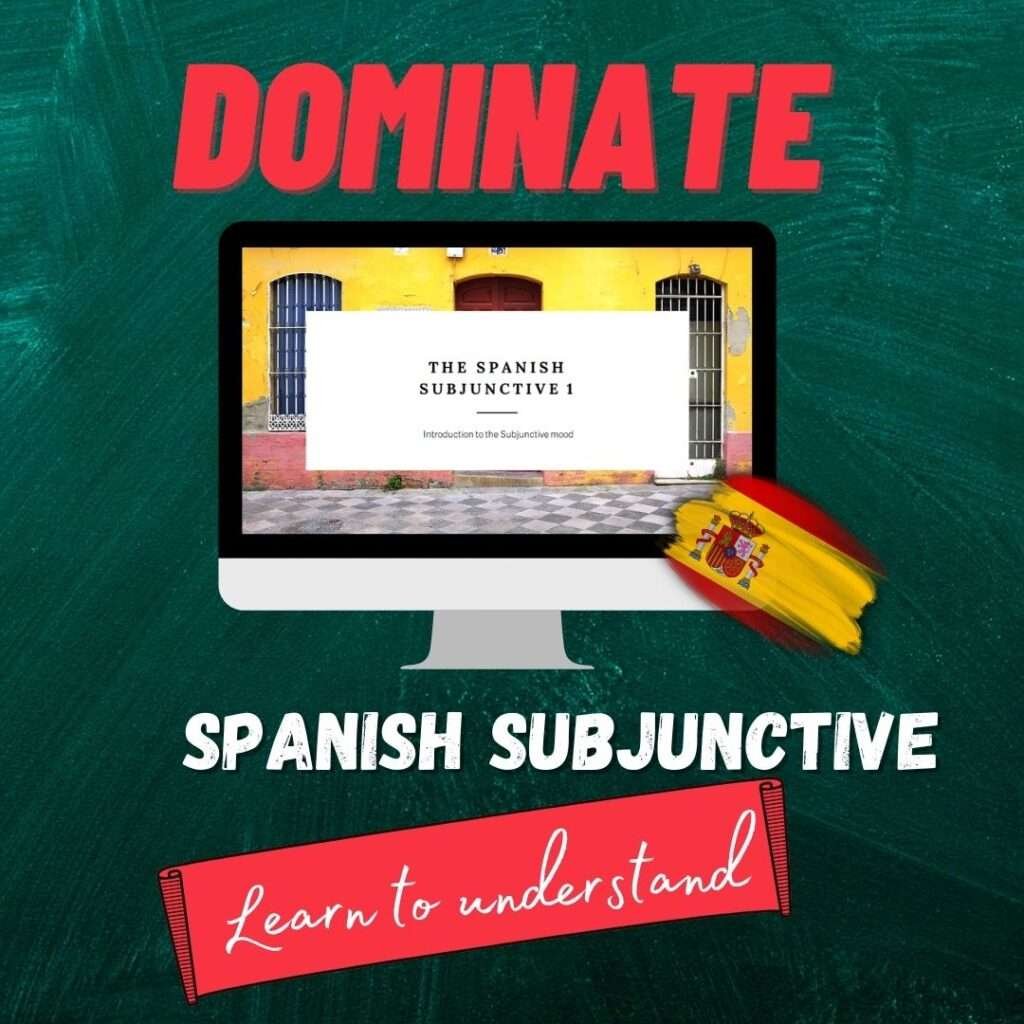Maybe you’re just starting to learn a new language, or maybe you’ve been attempting to learn it on your own for some time, but you’re just not seeing the results – either way, a great language tutor can steer you in the right direction with their invaluable knowledge and guidance.
In our modern era of language learning apps and language exchange partners, we’re often given the impression that tutoring, taking a course, or even studying at a university, has become obsolete, and not really necessary to master a language.
And yet, so many people are still on the lookout for a great tutor. As with anything that you can google nowadays, options are endless – which makes the task all that more difficult.
So why a great language tutor will never go out of fashion and how can you find one yourself?
WHY HAVING A GREAT LANGUAGE TUTOR IS IMPORTANT
There are many reasons why people choose tutoring. It could be to help prepare for an important exam, to fill in gaps in knowledge outside of regular class or self-study, or they might hire a tutor from the get-go. Whatever the reason, the outcome is always the same: a great tutor will provide individualized learning experience you will not get anywhere else.
As an illustration, imagine for a moment you’re a newbie at the gym. Chances are, you’re going to feel very lost on your first day. You will not know where to even begin from, what equipment to use and in which order. Probably, you will roam from place to place, feeling like you have no idea what you’re doing. You will not only feel frustrated, but also risk a potential injury. This is why people hire personal trainers. They’re there to guide you, give you the structure that you need so badly, encourage you, but also to push you when needed. And having a tutor is somewhat like that; in the end, learning a language is muscle that requires constant flexing.
So let’s see the main reasons why having a tutor is so important.
ACCOUNTABILITY
We all know that simply starting is often the most difficult part of learning any skill. To continue with the gym metaphor; for many, the process of getting motivated to get up after a long day, packing and walking/driving to the gym is the most cumbersome part – not the exercise itself. And if we have a friend or a coach waiting for us at the gym, we’re much more likely to show up.
Why is that? It’s just human nature; we don’t want to appear lazy or feel embarrassed for not showing up, leaving us feeling bad about ourselves. We also like to impress others more than ourselves.
Your tutor is there to hold you accountable. Not just for showing up, but for the work you do outside of the classroom, too. No one wants to come to class without having done their homework or studied for the test. You will be held accountable not just for your attendance, but for your progress as well.
This is the tactic that even Duolingo tries to implement, by sending reminders or even reprimanding messages for not making progress. However, we’re much more likely to discard such a condescending email than act on it. On the other side, having an actual person that you have built a rapport with, feels more motivating. It is more rewarding and has much bigger impact on our psyche. It plays right into our self-actualization drive.
And most importantly, this kind of accountability leads to the crucial part of any learning journey: consistency.
MOTIVATION
Having a tutor will not only keep you accountable by making you show up for class. Your tutor will also keep you engaged and motivated during the class. This will create a positive learning cycle that will prompt you to study more outside of the classroom. This is especially important for when you’re struggling. Whether that’s because you’re learning an especially difficult part of grammar, have trouble memorizing a myriad of words, or just feel discouraged in general. Your tutor will keep things relevant, ask follow-up questions and do their best to make you understand, encouraging and supporting you along the way.
Motivation is a frequently ignored part of language learning journey. However, it is what will keep you going when you feel like giving up. Language learning is a journey, and we are yet to meet a students whose motivation levels stayed consistent throughout. Often, it’s a rollercoaster ride.
A great tutor will be your cheerleader during lesson hours AND outside. Motivation levels will go up and down and it’s important you have someone to lean on when you start doubting yourself. If they’re not providing you with that – change them.
STRUCTURE
We’ve already talked about how lost a newbie ought to feel at the gym, especially in the beginning. This feeling can be so overwhelming that many will just quit after very little time. And they feel this way because they’re lacking something very important: structure. They’re unsure of which exercises to do and if they’re even doing them correctly. This leaves them feeling unmotivated to continue, especially when the results are not there.
However, if you have a coach with you, they will guide you with their expertise. You will know that for optimal muscle growth, you have to warm up first, then start with compound movements, then isolations, and finally finish with stretching in order to prevent an injury.
But what does an injury look like in language learning, you might wonder? An injury would be the equivalent to the errors that we pick up along the way (that we might not even be aware of). It’s holes in our knowledge that are very common for autodidacts. It includes things like the disequilibrium in the development of the 4 skills (listening, reading, speaking and writing), or, more broadly, a completely erroneous idea about what it takes to learn a language and be fluent. We have seen former and much more. Untangling years of erroneous information, errors, misconceptions and unequally developed skills because of bad and unprofessional tutors is often what we have to do. It ends up costing students more time and money than to have gone with a professional tutor from the beginning.
Without a firm structure, you won’t be able to progress gradually and consistently. After all, a language is a structure in itself. Having a tutor who knows the subject and how to teach it will make you feel confident and reassured; you will know you’re on the right track and that this is all building up to something.
QUALITY MATERIALS

Nowadays, availability of resources is not a problem; there are all sorts of learning aids to be found online: books, YouTube channels, worksheets, games…
It’s all usually one click away so you might think finding the materials is the easy part. However, finding the RIGHT materials can be quite time-consuming. It involves a lot of digging, investigating, giving it a go to see if it works for you… Unfortunately, it often doesn’t and by then you’ve already spent quite a lot of time and money. Even worse, you might not even realize that you’re not working with a quality resource – risking an ‘injury.’
Your tutor can spare you from all of this. After all, they were a student once, too, and had years of exposure to all sorts of materials. They will know which materials to use, and will often combine them in the way that is most efficient for you. The best tutors do exactly that. They have a long list of the best materials out there, and they often create their own to tailor to their students’ needs.
Your tutor really is your coach. In the same way your personal trainer will prescribe the right meal plan for your needs, the tutor will compile all the materials that you need.
In the long run, this will save you a lot of time and – money.
FEEDBACK
Learning a language without feedback is a lot like doing the exercises without having anyone to correct your form.
Imagine you’re going to the gym day after day, doing the same sets of exercises, but even after months of hard work, the results are still not there. That’s when you have to stop and wonder why that is. Chances are, you’re probably doing them wrong without realizing it. Contrary to the popular saying, practice doesn’t make perfect; perfect practice does, however.
We could compare that to learning a bunch of pre-rehearsed sentences in a foreign language, only to one day realize that you can’t form your own sentences – which is what everyone wants to be able to do in the end, to a varying degree.
Without regular, honest feedback, it will be much harder to make progress. You might not know you’re making errors, or you might be really good at listening and understanding but bad at writing so your tutor will draw your attention to that. You might know you’re bad at writing but don’t know how to get better so the tutor will give you the necessary tools. Your tutor will tell you exactly what to look for, what your strong points are, and most importantly, how to fix your weak points, to then track them over time and monitor your progress. They need to make every single mistake of yours, a learning experience for you.
Quality feedback is absolutely crucial for language learning. It will make you grow, understand, think about and focus on things you would struggle to do on your own. According to a Cambridge paper feedback will:
- improve the fluency, accuracy or complexity of learners’ speaking and writing
- motivate learners
- develop learner autonomy
And then, one day, you will be able to do the exercises on your own, without needing anyone to stand by and give you corrections.
Now that we’ve seen why having a tutor is important, we’d like to tell you more about what to bear in mind before searching and how to recognize a great tutor once you find them.
KNOW YOUR GOALS AND REQUIREMENTS
Before embarking on a search for a tutor, it’s worth knowing what your needs and requirements are.
Are you looking for long-term guidance, or are you just going through a rough patch? This is especially good to know because of the pricing. Most tutors will offer you a discount or a package if you need more classes.
What is your schedule like, do you have the time for in-person tuition or do you prefer the flexibility of an online tutor? Do you want the attention of 1:1 tuition, or the community of group courses? Bear in mind that this will limit or broaden your search, respectively.
Although a great tutor will always do a thorough assessment of your current level, you probably already have an idea of your problem areas: is it grammar or maybe just one aspect of grammar that you’re struggling with, or is it output (speaking and writing) that you want to put in active use? Maybe you are a complete beginner and don’t know where to start? Maybe you have tried for years, but with little progress? The latter is a clear sign that you must find the best tutor out there to help you heal years of self-doubt, and confusion, as well as mistrust in tutors.
And most importantly, what is your end goal? Do you want to reach proficiency or are you happy with conversational level?
All of these things will help you understand what you can expect and will help your tutor tailor the best possible study plan for you – and that’s what tutoring is all about.
Once you’ve established that, it’s time to begin your search. But how will you know that the tutor you’ve found is a good one? Let’s take a look.
WHAT MAKES A GREAT LANGUAGE TUTOR?

Now that we’ve seen some of the benefits of working with a tutor, let’s dive a bit deeper and see what, exactly, makes a great tutor.
You will know if you’re working with the best if they:
TRY THEIR BEST TO GET TO KNOW YOU
When learning a new language, you will inevitably have to talk about yourself; your hobbies, interests, your thought and feelings. In no other course will you share that much personal information. And that is the goal – to be able to communicate everything about yourself in your target language.
A great language tutor will not only ask you to talk about yourself for the sake of practicing. They will actively listen and try to get to know you as much as possible. This will allow them to adapt the study plan to you, taking who you are and what your goals are into account. They will also actively seek out materials that suit your interests or even create new materials for you. For example, if you’re learning a language because you want to study Medicine abroad, they will bring extra materials on human anatomy. If you’re learning Spanish and mentioned at some point that you love Money Heist, they will make sure to include materials on that topic at some point.
And this is because a great tutor genuinely cares about you getting the most out of their class. This will keep you engaged and make you even more motivated to continue showing up to the class and learning outside of the classroom.
ORGANIZATION SKILLS
A great language tutor will inevitably have great organization skills. Why is that important? Not only is a language itself a structure as we had previously observed, but your classes also need to be fairly structured in order to be effective.
There’s a lot that goes on outside of the class that you don’t see; reading and correcting your homework, researching and looking for new materials, making a short-term and long-term study plan, building syllabus…All of this will manifest in a class that is led with confidence and ease. You will feel like the tutor knows exactly what they’re doing in each moment because, well, they do. The class is just where they deliver all the hard work they had put in.
Every tutor will ask you to respect the deadlines for the assignments, but a great tutor will also practice what they preach. If they told you they’d send you over the correction by Friday, then they should definitely keep their word. A great tutor always leads by example.
This doesn’t mean that your classes are stiff. They should be spontaneous to create learning opportunities and confident enough in their knowledge to take on any question you might have on the spot. A great language tutor will know when it’s time for a more relaxed conversation, but they will always be very conscious of the time. They want you to get the most out of the time you’re paying for.
SUBJECT KNOWLEDGE
A qualified tutor is someone who’s spent years and years studying and researching the subject. This means that they have a wealth of knowledge – and they’re eager to share it with you. A great tutor will teach you on the spot, meaning, they will correct you as soon as you make a mistake or better yet, they will help you correct yourself.
They ooze knowledge and expertise that goes beyond the textbook and will be able to explain the content through their own examples and will never tell you ‘because that’s just how it is’. A great tutor knows that everything in a language makes sense and is there for a reason so they will do their best to make you understand more. They will help you become an independent user by making you understand how the language you wish to learn functions. This can only be accomplished through their in-depth answers, continuous and structured support and feedback.
This is where their creativity comes into play. Thinking on the spot, taking in what you give them, and creating a perfect, relatable learning opportunity supported by high levels of knowledge and skill is a sign of a great tutor.
Not only that, but they will also try to teach you as much as possible about the culture, history, movies, literature, music, and share fun facts. This is because they understand that language is its people and people are their language. Connecting with the language in this way will only deepen your love and interest so you will feel even more motivated to keep going.
THEY HAVE AMAZING DIDACTICS SKILLS
However, being a great tutor isn’t just about having a lot of knowledge. All that knowledge will mean nothing if the tutor doesn’t know how to convey it to the student. This is where didactics come in.
First of all, what is didactics? It stems from Greek word διδάσκειν didáskein, “to teach” and translates as ‘apt at teaching.’ It means that their teaching method follows a consistent educational approach to present information to students. For example, a lot of language institutions around the world follow Common European Framework of Reference (CEFR). It’s a very structured methodology with mostly a set pattern although a great tutor will always infuse in with their own tools and touch. The founder of Romance Language Centre, for instance, uses ‘trigger points’ system, linking certain learning points to relatable content and facts, to later use as retrieval tool, triggering students’ memory. Students retrieve memory of certain words by associating them with something more memorable; those associations, therefore, become triggers. It takes only but a mention of that trigger for students to remember.
A tutor with didactic teaching will always have a study plan ready for your specific objectives and they will also conduct periodic performance evaluations to make sure that you meet those objectives. This can mean written/oral tests, dictations, presentations, etc.
A great tutor will also always ask you if you’re happy with the pace and the outcomes from your class. If there’s something that you would like to change, they will adapt accordingly instead of sticking blindly to the curriculum.
In each class, they will:
- Build on pre-existing knowledge
- Apply the newly acquired knowledge
- Make you retrieve knowledge through repetition
PASSION
Another thing worth mentioning is the tutor’s energy. They need to be passionate and excited, or else they won’t make you feel the same way. A great tutor will always encourage and support you along the way with their positive energy, keeping you engaged by asking you questions and making you think for yourself instead of just telling you.
They must be passionate about their subject to be able to inspire the same in their students. A great tutor’s energy and love of language and culture they are teaching can be describes as nothing but infectious.
EMBRACING THE ERRORS
A great tutor will be capable of creating a safe environment in which the student isn’t afraid of asking questions, no matter how silly they might sound to you. They will teach you that mistakes are nothing but amazing learning opportunities. From this attitude, students become more confident and embrace their imperfections. This leads to less stress, and higher understanding of the learning process.
HIGH BUT REALISTIC STANDARDS AND ETHICS
A great tutor will have high standards both for their work, their knowledge and for their results that will be based on a well-tested framework. You can judge this solely on the quality of their resources, the attention to detail, and most importantly – their honesty. They will risk losing potential students by telling them that yes, it might take years to achieve independent fluency, and above all, a lot of hard work.
This shows that they have been through the process, they have high standards for fluency, that they have experience, with every student not being the same, and that they know what it takes to really learn a language. A great language tutor will not sugar-coat the process, but they will work hard to make it easier for you.
WHERE TO FIND A GREAT LANGUAGE TUTOR?
Now that we know why having a tutor is important and how to spot one, it’s time we’ve explored your options. You might feel overwhelmed by the sheer amount of information and advertisements out there; having too many options is often counter-effective because it makes it so much harder to sift through all the information. It can be hard not knowing where to even start, who to trust and ultimately, if you’re even making the best choice.
So let’s find out what are some of the ways in which you can find your tutor – and how to make an informed decision.
WORD OF MOUTH
This is still one of the safest, most effective ways to find a tutor. The obvious advantage is that you’re getting a whole-hearted recommendation from someone who’s speaking from personal experience. They will honestly tell you what the tutor is like, beyond what it says on the website, what their approach is like, how much they’ve accomplished, etc.
Here comes the tricky part, though. Not every tutor will work for everybody. We invite you to think once again about your needs and requirements. Maybe your friend or colleague is just trying to learn enough to visit Italy, while you want to be able to speak and write at an academic level. Perhaps you just want to learn casually, and your friend loves being pushed and challenged all the time.
Maybe their tutor is good enough for that but isn’t qualified to see you through your own objectives. This is especially true for native speakers, whose only qualification is often that they’re a native speaker. Not many native speakers are at an academic level, have enough understanding of language system or have the necessary teaching method to see you through.
Or it might be more simple than that: maybe you just won’t ‘click’. Some people prefer a more mellow energy, while others prefer someone who is very open and excitable.
TUTORING AGENCIES
If you google ‘find a tutor’ you will probably be swarmed by a myriad of tutoring agencies. And this is because there truly are many of them: Tutorful, My Tutor, Superprof, to name just a few.
The good thing about tutoring agencies is that most of them run safety checks on their tutors, if that is a big concern of yours. Everything that happens, goes through the agency. Whether you’re going to meet face-to-face or have lessons online, depends entirely on your desires, your location, but also on the tutor.
The bad news is that the prices are usually higher, and this is because the agencies take a commission so the tutors have to raise their rates. However, platforms such as Superprof have a mandatory free 1st class so you can always give it a go and see if it’s the right fit.
INDEPENDENT LANGUAGE SCHOOLS
If you want to avoid higher fees due to commission and at the same time find out a bit more about the tutor before-hand, googling independent language schools, whether physical or online, is a way to go.
They will usually have a well-put together website, where you will be able to read all about their expertise, methodology and policies. Many of them offer a free assessment to find out where you are in your learning journey, what are your objectives, and to see if you ‘click.’
They will usually care more about your outcomes and satisfaction because this is what they do for a living.
Which brings us to our next and probably most important step.
Whether you meet a tutor through a personal recommendation, a tutoring agency or a language school, you’re going to have an assessment. This first meeting with your tutor is crucial. Don’t think that it is solely an assessment of you and your skills; you’re also the one who should be assessing your tutor.
You might wonder how you can assess your tutor when you know nothing about learning a language? We’re here to help.
ASSESS YOUR TUTOR

To help you navigate the process, let’s answer first what is exactly an assessment and what it consists of.
The first thing you need to know is that it’s nothing to be afraid of. It is there for your benefit, first and foremost. During an assessment, you will talk about your experience with learning your target language, if you have any. You might have to do a placement test and oral cross-examination to see if you’re really at the level you think you’re at. Evaluating the level correctly is tricky, even for seasoned tutors so it is again nothing to be nervous about. This will just show the tutor what gaps in your knowledge you potentially have so they might place you a level below to give you a chance to catch up at your own pace. Or you might suffering from low confidence, and the tutor will assure you that you are actually better than you thought.
Make sure that the assessment they put you through is based on an official framework and that they know what they are doing. At Romance Language Centre we use the official standards for Spanish language competency prescribed by Instituto Cervantes and based on CEFR.
Apart from assessing your knowledge of the subject, the assessment serves to explore your learning options. Which language course to take? Would a small group or 1:1 be more suitable for you? What is your availability and how often you should have class to reach your goals? Are you goals realistic? How much homework are you comfortable with? How much work are you willing to put in?
Make sure the tutor is frank and honest with you and not just there to get your money. A good way to tell – they might not tell you everything you want to hear.
And now onto you.
MEET FACE-TO-FACE
To begin, make sure that your assessment doesn’t consist only of the placement test. You should always meet with the tutor face-to-face, whether that’s in person or via Zoom. You want to get a feel for the tutor beyond what the reviews say. Remember, not every tutor will work for everyone.
They might have all the credentials in the world, but their energy might not match up with yours at all. A great tutor will always try to get to know you and build a rapport so that initial connection is extremely important. Also, observe how willing and confident they are in answering all the questions you have for them – this will show you how aware they are of the nature of language learning, how humble and professional they are and how much they care about you personally.
MAKE SURE THEY ARE AVAILABLE
The tutor that you want must have the attitude that they’re there for you, not you for them. At Romance Language Centre, maximum flexibility and availability of tutors outside lesson hours is part of what our students pay for. And if you are paying for expensive 1:1 classes, understand that what you can get for your money.
This doesn’t mean that they will always be free – that just wouldn’t be realistic, especially with highly sought-after tutors. However, the right tutor will always do their best to accommodate you – even if that means working with time zones and doing some late nights. You should never feel like you have to chase your tutor – if that’s the case, they’re not for you.
CLEAR AND TRANSPARENT POLICY
A great professional tutor will possess some sort of written policy explaining to you how your lessons would be structured, what their expectations are, what are tutors and students responsibilities, how you can cancel lessons, how you can pay and get a refund, etc. We offer our students a clearly written out learning agreement, explaining everything from cancellation policy and schedule to payment options and homework responsibilities. Even though a perfect tutor for you might not have such an in-depth and written out policy, it is important they showcase transparency and professionalism in their work. It is a good sign that they will take you seriously.
ASK ALL THE QUESTIONS
You might feel like it’s only up to the tutor to ask questions as it’s an assessment. That is wrong – this is your chance to form a definite opinion and make an informed final decision.
When you made a decision to learn your desired language, you must have wondered at some point how long it will take you to learn it? How much time and money will you have to invest? Maybe you had tried to learn it on your own, but that didn’t quite work out, so you’re now left wondering: what is even the right way to learn a language? What is their approach, their didactics? How much experience do they have?
Listen carefully how they respond to these questions. First of all, a great language tutor who knows their profession will never tell you off the bat that it is absolutely possible for you to learn a language in three months – unless they’ve assessed you as a genius previously. To claim that would be irresponsible towards you as a learner because it is not realistic and it would only lead to you feeling bad about yourself.
A tutor you want will take into account many factors. They will consider your circumstances, age, your mother tongue and education level, your history with XY language, your schedule, your motivation, knowledge of other languages, level of language learning aptitude…There are many factors that go into this, so a great tutor will first make sure they’ve got a full picture before giving you an estimate. Steer away from outlandish promises – they are a red flag. If you would like to learn more about how long it takes to learn a language, you can read our in-depth article on that topic.
METHODOLOGY AND EXPERIENCE
As for the methodology, the tutor doesn’t have to recite the entire curriculum to you on the spot; you just need to make sure they have one. A good tutor will tell you that the content given to you will balance all 4 of the skills – writing, listening, speaking and reading. They will make a study plan for you and promise you regular feedback. This kind of awareness and carefulness around the learning objectives and their realization comes with another important factor – experience. So don’t be shy to ask how long they’ve been teaching and if they’ve taught students in a similar position as yours.
So unless you’re already at a high level and are specifically looking for a conversational class just to practice, steer away from the ‘immersion method’. It is often favoured by the native speakers without the appropriate qualifications and knowledge on teaching a language. They are most likely trying to earn quick and easy money. And whilst everyone has a right to earn a living, students also have a right to make their own educated decisions.
That is another point you have to consider; are you stuck on going with a native speaker because you believe that is the best way to learn? Here are some things to take into account.
NATIVE OR NOT?
Nowadays, native speakers are favoured by most of the language schools, especially in the West. Having a native speaker has become the universal guarantee of quality; however, that’s not always the case. That’s not to say that there aren’t some amazing native teachers. Maybe they studied their language in-depth and are qualified to teach. We’re not talking about them. We’re referring to the entire phenomena around the immersion method and the belief that only native teachers can teach. This has created a breeding ground for scammers.
You will recognize them by their poorly put-together adds on social media and ridiculously cheap prices or ‘language exchanges’. They will rob you not just of your money, but of the opportunity to learn. Someone being a native speaker does not equal knowing how to teach, or even knowing the rules of their own language if they never studied them. Ask yourself, how well do you understand your own language? There are people out there who do and are able to make you learn with understanding. They are called professional language tutors, who are many times professors of said language.
Just like with non-native tutors, you need to make sure that your native speaker has the methodology, the skills, the knowledge, the passion, and the experience to back them up. Just being a native speaker doesn’t suffice.
Even in our modern era of ‘miraculous’ language learning apps and all sorts of resources available, nothing compares to a really great tutor. Having a tutor is important because they will keep your accountable and motivated. They will give you much needed structure, provide you regular feedback and quality materials.
A really good tutor, the one you want to find, is the one who tries to get to know you in order to tailor the study plan and the resources to your objectives and needs. Their classes are very structured and follow a certain curriculum. Not only are they very knowledgeable about the subject, they know how to transmit that knowledge because they have didactics – a teaching method.
Before starting the search for your own personal coach and cheerleader, it’s good to become more aware of your own requirements and needs. You also must know which questions to ask so that YOU can assess your tutor correctly. Hearing how they answer to some common misconceptions about learning a language such as how long will it take me, how do I learn a language, will give you a good indication of their expertise. Whether the tutor is native or not, whether you found them via tutoring agency, a personal recommendation or a language school, they need to have a qualification, methodology and experience in teaching.
GET ASSESSED BY ROMANCE LANGUAGE CENTRE
Students are at the heart of our school! We are firm believers in honest feedback, realistic outcomes, high standards and learning with understanding.
If you have any doubts about which learning options would be the best for you, which language course to take, the level you are at or you require individual, small group learning or exam preparations, meet one of our tutors for a FREE consultation. We want to meet you and help find the best learning option for you.
















